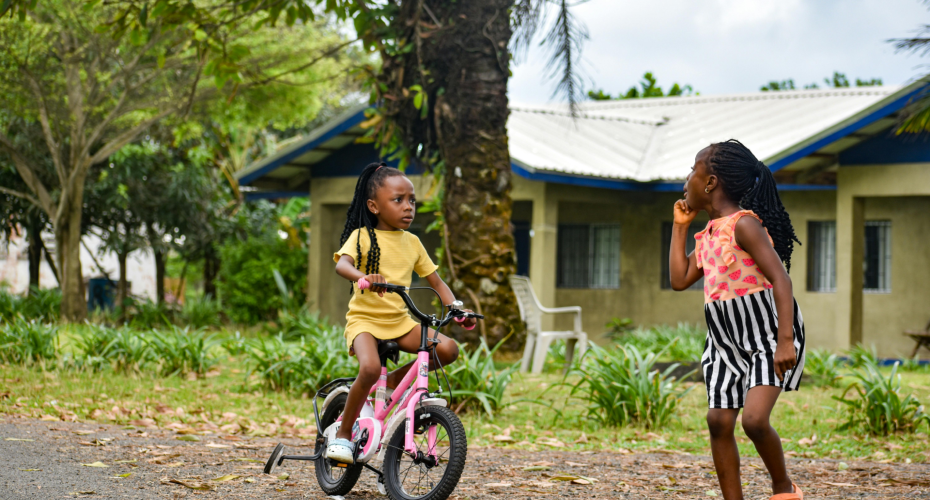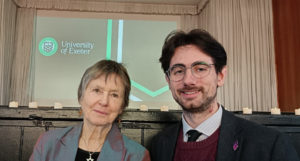New subtype of diabetes identified in Africa in first largescale study

Photo by Aristotle Guweh Jr on Pexels
A new subtype of diabetes has been identified in children and young people in sub-Saharan Africa and could mean many patients are not on the best treatment for them.
The new finding, published in The Lancet Diabetes & Endocrinology and funded by the UK’s National Institute for Health and Care Research (NIHR), challenges the global understanding of diabetes in young people. It raises concerns that many patients across the continent, and possibly beyond, may need their diagnosis updated to access the best treatment.
The discovery was made through the largest study of its kind in the region. Researchers found that nearly two thirds (65 per cent) of young people thought to have type 1 diabetes lacked the typical features of the disease, including evidence of the immune system attacking the pancreas (autoimmunity) and genetic susceptibility. Instead, they appear to have a novel, non-autoimmune subtype, not captured by current global classifications. More than nine million people across the world have type 1 diabetes, a chronic disease in which the immune system attacks and destroys insulin-producing cells in the pancreas, known as an autoimmune disease. Insulin controls blood sugar, and patients have to rely on insulin injections for this function, to avoid damaging and even deadly complications. Yet clinicians in parts of Africa had long suspected that some children diagnosed with type 1 diabetes did not quite fit the standard profile.
Dr Jean Claude Katte, of the University of Exeter, and a Translational Fellow with the Exeter NIHR Biomedical Research Centre, said: “These new research findings confirm our long-standing suspicion. We have always wondered why many young people diagnosed with type 1 diabetes manage to survive without insulin, at least for some time, which would be unusual in typical type 1 diabetes.”
Professor Moffat Nyirenda, Director of the Medical Research Council / Uganda Virus Research Institute (MRC/UVRI) and the London School of Hygiene and Tropical Medicine Uganda Research Unit, said: “These findings are a wake-up call. They challenge our assumptions about type 1 diabetes and show that the disease may present differently in African children and adolescents. We urgently need to deepen our investigations into the biological and environmental factors driving this form of diabetes and ensure our diagnostic and treatment approaches are fit for purpose in African settings.”
The findings emerged from the Young-Onset Diabetes in Sub-Saharan Africa (YODA) study, involving nearly 900 participants across Cameroon, Uganda, and South Africa. The participants were all diagnosed with type 1 diabetes before the age of 30 years. The research was conducted by scientists from the University of Yaoundé 1, the MRC/UVRI and the London School of Hygiene and Tropical Medicine Uganda Research Unit, University of Witwatersrand, and the University of Exeter.
They found that approximately 65 per cent did not have antibodies typically present in autoimmune diabetes, nor did they evidence of genetic predisposition to type 1 diabetes. Moreover, these patients did not have features consistent with other known types of diabetes, such as type 2 and malnutrition-related diabetes.
To determine whether this new subtype was seen outside Africa, the team analysed over 3,000 children in the US-based SEARCH for Diabetes in Youth study. The subtype was found in a small number of Black American children, and was absent in white participants, suggesting environmental or ancestral factors.
Dr Katte said: “Our next step is to investigate possible causes – ranging from infections and nutritional factors to environmental toxins. If we can find the cause, we may be able to prevent new cases and find new treatments.”
The team emphasises that the discovery highlights a major gap in global diabetes research. Most studies to date have focused on white Western populations, overlooking regional and genetic diversity in disease presentation.
Professor Eugene Sobngwi, Director of Health Care Organisation and Technology at the Ministry of Public Health of Cameroon and Senior Diabetes Researcher, said: “We must invest in context-specific research. If we don’t, we risk misdiagnosing and mistreating millions of people.”
The study is titled ‘Non-autoimmune insulin-deficient diabetes in children and young adults in Africa: evidence from the Young-Onset Diabetes in Sub-Saharan Africa (YODA) Study’.



